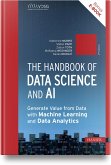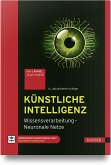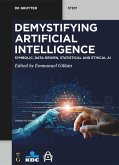The handbook provides a well-founded and wide-ranging overview of the content of the European AI Act and its impact on the various areas of application of artificial intelligence in the private and public sector. After a brief introduction to the current state of AI in terms of international strategies, methods, regulation and ethical issues, the second chapter explains the content of the AI Act based on its structure. Further chapters in this part of the book deal with data protection, intellectual property and IT law.
In the second part of the book, the impact of the AI Act on various AI application areas such as mobility, work, critical infrastructure, medicine, etc. is discussed using various case studies. The authors differentiate here between private and public sector.
The book concludes with AI governance risk compliance in companies and gives practical advice on using guidelines and governance framworks, the impact of ethical questions and the meaning of soft Law e.g. standards.
The team of authors consists of lawyers specializing in IT and data protection law and the use of AI. It consists, among others, of Austria's representative in the AI Act negotiations at EU Council level and the founder of the Austrian chapter of Women in AI.
In the second part of the book, the impact of the AI Act on various AI application areas such as mobility, work, critical infrastructure, medicine, etc. is discussed using various case studies. The authors differentiate here between private and public sector.
The book concludes with AI governance risk compliance in companies and gives practical advice on using guidelines and governance framworks, the impact of ethical questions and the meaning of soft Law e.g. standards.
The team of authors consists of lawyers specializing in IT and data protection law and the use of AI. It consists, among others, of Austria's representative in the AI Act negotiations at EU Council level and the founder of the Austrian chapter of Women in AI.








